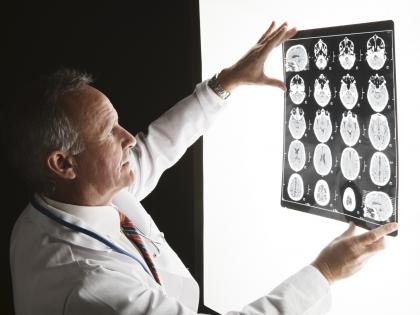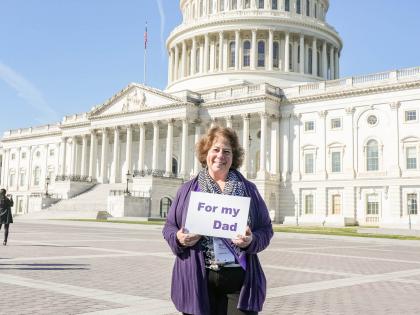Nebraska State Alzheimer’s Plan Overview

In May 2015, Governor Pete Ricketts signed LB320, calling for the creation of a State Plan on Alzheimer’s disease. The legislation requires the Aging Nebraskans Task Force to assess existing resources in the state, provide recommendations to meet the growing needs of those impacted by Alzheimer’s, and develop strategies to identify gaps in community services. The Task Force included representatives from state agencies, long-term care organizations, elder law, and community organizations as well as economists, seniors, caregivers, and aging advocates. The Nebraska State Plan for Alzheimer's Disease and Related Dementias was published in June 2016. A State Plan Infographic is also available.
Nebraska 2026 Policy Priorities

Expand Access to Alzheimer’s Treatments for State-Regulated Private Insurance Plans and Medicaid
Following the Food and Drug Administration’s (FDA) approval of Alzheimer’s treatments that slow the progression of the disease, state governments have a duty to ensure access to these treatments in Medicaid and other state programs, as well as private insurance plans regulated by the state. After requiring treatment coverage in state employee health plans, the Alzheimer’s Association is calling on state lawmakers to pass legislation requiring coverage in state-regulated private insurance and Medicaid plans to continue the progress toward greater access to treatment.

Empower Adult Protective Services Workers with Dementia Training
Adult Protective Services (APS) workers frequently encounter individuals living with Alzheimer’s and other dementia when responding to emergencies and are often the first to observe instances of abuse, neglect, and exploitation. Often the first point of intervention for a person living with dementia, APS workers must be able to recognize the signs of dementia and know how to effectively communicate with an individual living with dementia to ensure a timely response for victims of elder abuse. The Alzheimer’s Association is urging state policymakers to require dementia-specific training for APS workers so these professionals can obtain skills to effectively interact with victims of elder abuse who are living with dementia or experiencing cognitive decline.
Sign Up to Learn About Advocacy Opportunities in Nebraska

Find My Chapter
Together, we’re making an impact. Find an Alzheimer’s Association chapter in your community for more ways to engage.
Contact Us
State Affairs Contact: Alex DeGarmo
Phone: 402.260.7907
Email: aadegarmo@alz.org
35,100
people living with Alzheimer’s in Nebraska
41,000
Nebraskans are providing unpaid care
$446 Million
Medicaid cost of caring for people living with Alzheimer’s (2025)
746
deaths from Alzheimer’s in 2022
18%
in hospice with a primary diagnosis of dementia
137%
increase of geriatricians in Nebraska needed to meet the demand in 2050
Resources to Drive Change in Nebraska
The following resources developed by AIM and the Alzheimer’s Association will help you learn more about the issues impacting people living with Alzheimer’s and their caregivers, how Nebraska policymakers are addressing these gaps, and how you can help drive change.